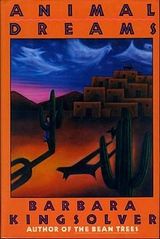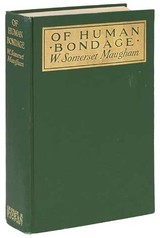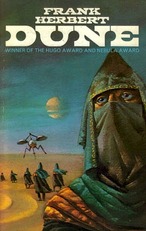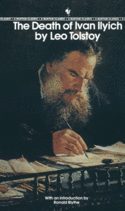Jan 10, 2015
Books Read 2014 - Fiction (part one)
 My very short nonfiction list was published earlier: Books Read 2014 – Nonfiction. I have no doubt the anticipation has been building for a book-by-book rundown of the 36 novels I managed to read last year, and I aim to deliver. Here is the first of two posts covering, in the order read, the fiction I finished in 2014.
My very short nonfiction list was published earlier: Books Read 2014 – Nonfiction. I have no doubt the anticipation has been building for a book-by-book rundown of the 36 novels I managed to read last year, and I aim to deliver. Here is the first of two posts covering, in the order read, the fiction I finished in 2014.
As I did last year I have indicated the books that show up on my self-compiled “Great Books of the 20th Century” lists. Placements on my Great Novels , Great Sci-fi and Fantasy Novels and Great Crime Novels lists, lovingly color-coded, are given where applicable.
—
- Doris Lessing - The Grass Is Singing
I read this because I did not have a copy of her The Golden Notebook (#25 on my Great Novels list). Loved it. Years ago I read and did not enjoy her The Cleft. Now I know why she is so well regarded. This is a powerful story of a very unhappy woman and the sad, brutal racism of African colonists. A remarkable debut novel.
- Gabriel Garcia Marquez - Love in the Time of Cholera
See Gabriel García Márquez where I overreacted a bit to his penchant for portraying—a bit too enthusiastically for my taste—the sexual abuse of young teenaged girls by old men. Yet, his gifts as a storyteller and prose stylist are undeniable.
- Per Wahloo and Maj Sjowall - The Terrorists
With this novel, I complete the cycle of ten “Martin Beck” mysteries written by the Swedish husband-and-wife team. These novels, published from 1965 (Roseanna) through this last novel in 1975 (the year of Wahloo’s death), are set against the backdrop of the Cold War with a strong undercurrent of pro-socialist political philosophy. I am more than a little bit sad to have finished with these. It feels like a death. I will reread at least one—The Laughing Policeman is #43 on my 46 Great 20th Century Crime Novels—and probably a few others: Roseanna, The Man on the Balcony and The Abominable Man at least. (I have also at least two more of the “Eric Winter” novels of Ake Edwardson to fall back on. In my mind Eric Winter is the next-generation Martin Beck, and I have to believe Edwardson has been profoundly influenced by Sjowall and Wahloo.)
 92 W. Somerset Maugham - Of Human Bondage
92 W. Somerset Maugham - Of Human Bondage
This is Maugham’s semi-autobiographical novel and usually said to be his masterpiece. Hard to read without wanting to dope-slap Philip, the main character, who nearly destroys his own life because of his morbid attraction to a poisonous woman. Things end happily enough for him, but he winds up a woman who will be more of a nurse to him than a wife.
- Barbara Kingsolver - Pigs in Heaven
A worthy sequel to Kingsolver’s wonderful The Bean Trees. In addition to a charming story, this book manages to include a lot of Native American history—specifically the Cherokee “Trail of Tears” forced march. Genocide is another word for what this country did to these people. Shameful. Kingsolver is a talented writer with a sense of social justice I admire. I look forward to reading more from her.
- Patricia Highsmith - Deep Water
Another of Highsmith’s man-kills-wife or man-wants-to-kill-wife novels. She was a very odd duck, that is for sure. Better at least than the disappointment of The Tremor of Forgery (a 2013 read), but not as good as the best of her work.
- W. Somerset Maugham - The Razor’s Edge
My third Maugham novel in a year (on The Moon and Sixpence, see Accidental Maugham; on Of Human Bondage see above) and my favorite of the three. This one was written in 1944 almost 30 years after the others. The main character, Larry Darrell, is almost a Christ figure. Maybe Buddha would be a better comparison. He is almost supernaturally stoic and good. The woman who loves him almost as much as she does material comforts does him no favors.
 2 Frank Herbert - Dune
2 Frank Herbert - Dune
I remember this book being a popular sensation when I was a teenager (though it was published almost 10 years before I entered high school). I wasn’t a big reader of science fiction then and did not read it myself, nor did I see the 1984 David Lynch film. This novel is apparently the biggest-selling science fiction novel ever and ranks behind only Orwell’s Nineteen Eighty-Four on my compilation of the Great 20th Century SciFi/Fantasy Novels. I would not rate it quite that highly myself. I did enjoy it, but unlike the novels of Ursula Le Guin and Philip K Dick, it did not inspire me to seek out more from its author. I did just recently see the film. Leaves out a lot. Dusty. Must have been a spectacle in ’84.
- 6 Jack Kerouac - On the Road
I am not well-read in “beat generation” writers. Should have read Kerouac as a much younger man. Not that I did not enjoy this—I did—but I am sure I would have found it profound as a teenager. Probably with unfortunate consequences. It features lots of humor, of course, though I’m not certain that this, the funniest sentence in the book, was meant to be so:
“So I rushed past the pretty girls, and the prettiest girls in the world live in Des Moines.”
- * H.G. Wells - The Invisible Man
I recently added six novels of Jules Verne and H.G. Wells to my self-inflicted science-fiction reading assignments. I am such a n00b sci-fi-wise that I felt I should go back and read or re-read the fathers of the genre. The Invisible Man is a fun one. The silly explanation of the protagonist’s discovery of a way to change a body’s “refractive index” to render it invisible can be understood as perfectly plausible to an 1897 readership. And, maybe not as absolutely far-fetched as we may think: scientists today are working on invisibility cloaks.
- Philip Roth - Everyman
This 2006 novel by Roth portrays a man, on the day of his own funeral, looking back over his life. I don’t just now remember exactly how this is framed. Is he a disembodied spirit looking down on the events of the day? At any rate, it is narrated in the first person. The man dies after an illness which provides him time to reflect on his unsatisfactory life and the “unfairness” of his situation. His older, richer and happier brother is the picture of health and destined, surely, for a long life. Obviously, the situation has some resonances with my own. But unlike the narrator, I am not (yet?) embittered, and though I have of course made my share of mistakes I would not change anything. Okay, I would not change much.
 Leo Tolstoy - The Death of Ivan Ilyich
Leo Tolstoy - The Death of Ivan Ilyich
I re-read Tolstoy’s novella as a companion piece of sorts to Philip Roth’s Everyman (see immediately above). This is another story of a man dying prematurely of an illness which provides him time to reflect on how he has lived his life. Again, the protagonist is unhappy and unreconciled to his fate. This is, though, a tale of how love from an unexpected source intervenes to provide a nudge towards an eleventh-hour peace that fills his heart and mind. Hopeful, but sobering.
- * H.G. Wells - The Island of Doctor Moreau
Another pioneering work of science fiction by H.G. Wells. Chimeras, oh my! As it is with the science of The Invisible Man (see above), the idea of chimeras is not entirely far-fetched. It should be a good long time before genetic engineers create half men/half pigs, but we know that it is more of a terrifying prospect than an impossible one.
- Barbara Kingsolver - Animal Dreams
This novel features a Native American heroine as do The Bean Trees and Pigs in Heaven. But though this book was published after Trees and before Pigs, it is not a part of that two-book tale. This one tells the story of modern descendants of the Hopi tribe and their fight against yet another threat to their homeland.
- Carl Hiaason - Nature Girl
Another of Hiaasen’s humorous, Florida-based environmental action novels. It is a odd but popular subgenre he has staked out all to himself. These are formulaic but reasonably fun. I am sure there are lots of sunblock-stained copies of his books available in Miami used bookstores. I’ve bounced around a bit through his catalog, reading his early Tourist Season and Skin Tight (1986 and 1989) before skipping forward to this 2006 offering. Not much has changed.
- 31 Robert A. Heinlein - Starship Troopers
Heinlein is an author I was almost wholly unfamiliar with prior to my compilation of a list of great science fiction novels. He places four on it. If that was not enough to pique my curiosity, an episode devoted to him on the Science Channel’s series Prophets of Science Fiction did the job. In this episode Heinlein was credited with originating the idea of powered body armor, which has only recently been under development by the United States’ military and others. Powered armor was described in this book, where it is employed in a war against the Arachnids of the planet Klendathu. Prophet though he may have been, we have not yet faced war with intergalactic bug people. Which is a very good thing: they are fierce fighters. Starship Troopers was published in 1959 and won the Hugo Award (Heinlein’s third of five).
- George R.R. Martin - A Storm of Swords
He is no Tolkien, but who is? The medieval fantasy world of George R.R. Martin is no more real than any world where fire-breathing dragons exist. But it certainly feels authentic. Brutal, but without quite the level of gratuitous and often violent sex that characterizes the HBO adaptation Game of Thrones. This volume is number three of five novels published to date in Martin’s epic fantasy cycle A Song of Ice and Fire. At least two more volumes are anticipated. Chances aren’t great I will live to see it completed.
- 24 Dashiell Hammett - The Glass Key
See Hard-boiled Hammett.
—
| DATE | TITLE |
| 12/09/2019 | Books 2019: #2 Dozen Really Matter? |
| 05/20/2019 | Why Not Both? |
| 04/23/2019 | Books 2019: #1 Take Ten |
| 04/15/2019 | Books 2018: #31 - #37 |
| see also ... | 113 Great 20th Century Novels |
| 46 Great 20th Century Crime Novels | |
| 45+ Great 20th Century SciFi/Fantasy Novels | |
| Books Read (2008-) | |
| Index of Book Posts |
-
Categorically
- Home
- Index
- ALS Bites
- Birding
- Blather
- Bloviation
- Crosswords
- Unbelievable
- Vidiocy and Other Stolen Stuff
Goodies

